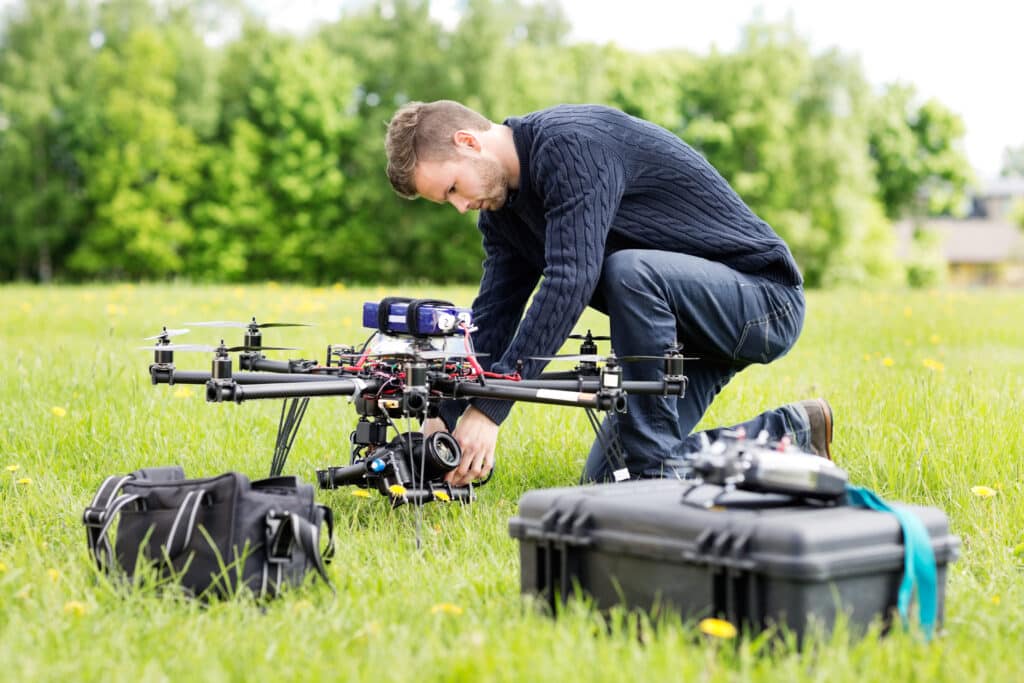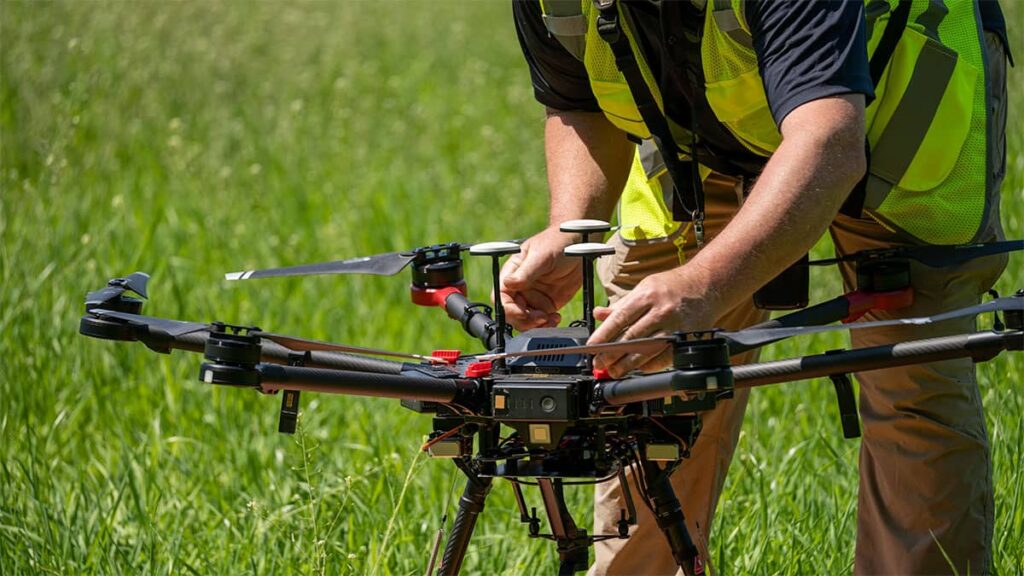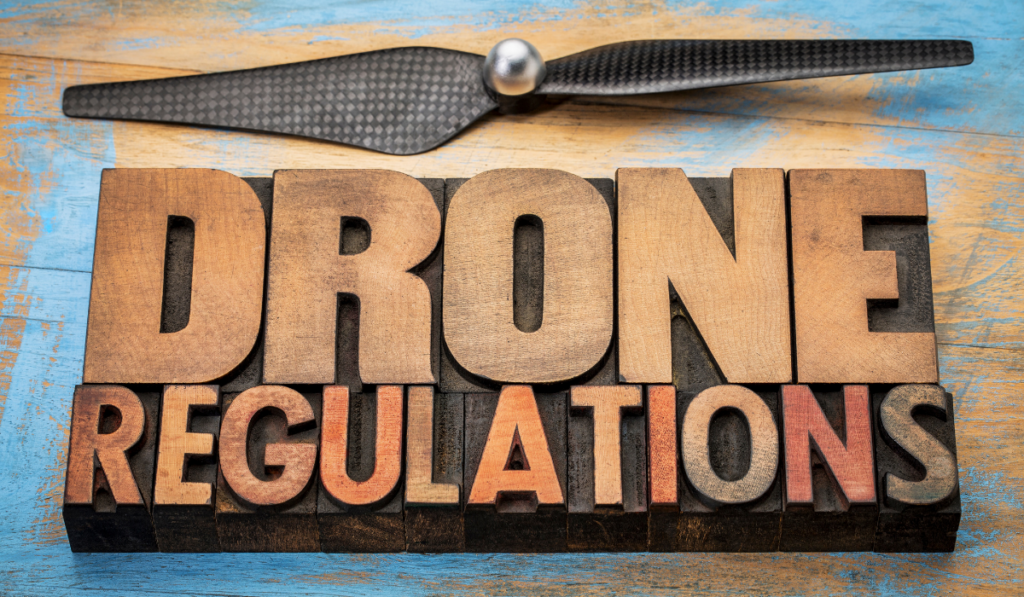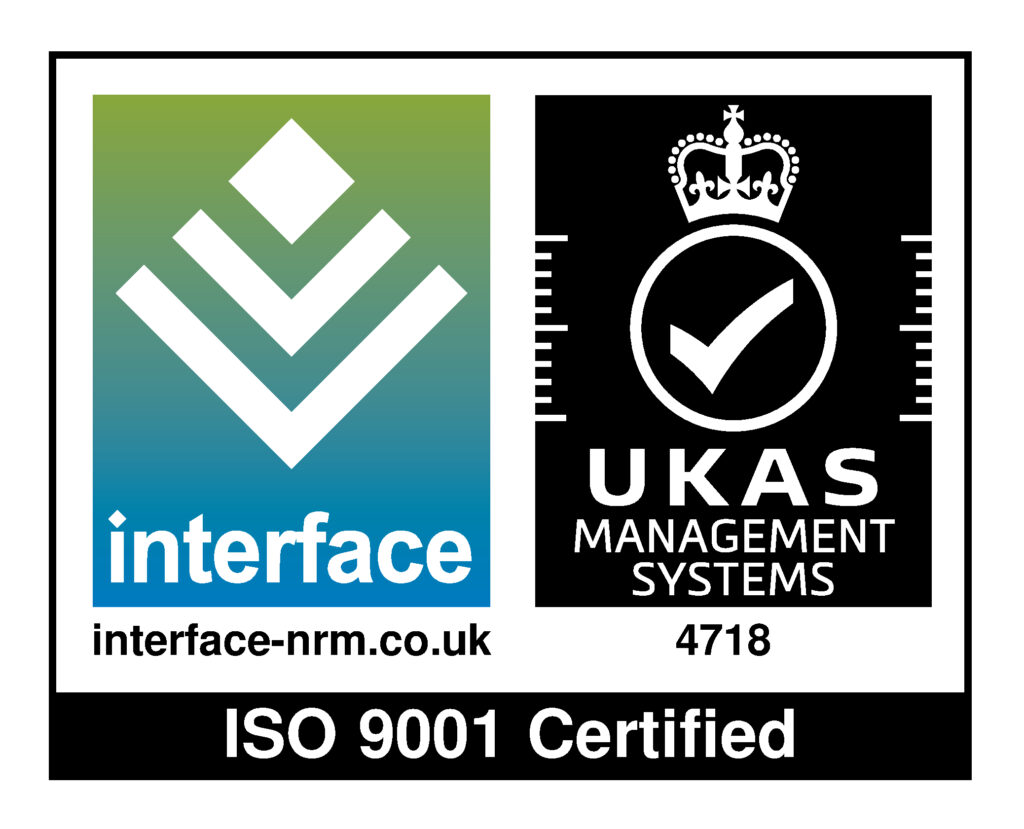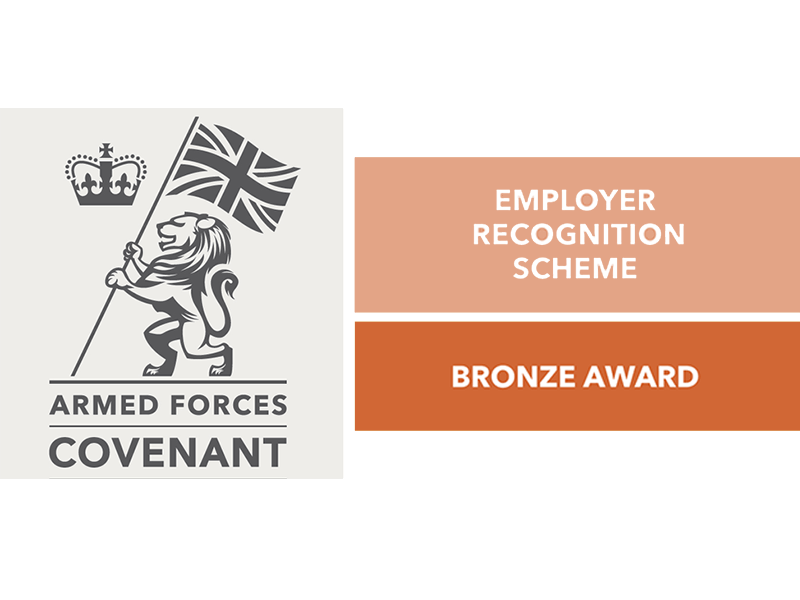Critical Aspects of Incorporating Drones Into Your Business
With the UAV industry poised to increase the UK’s GDP by £42 billion by 2030, as well as creating 628,000 new jobs, it’s a big pie to dig into for many aspiring businesses and individuals. So, have you thought about incorporating drones into your business yet?
Drones introduce huge benefits to companies in all industries. Not only do they bring new ways of completing tasks but they also open doors to greater efficiencies, productivity, and safer operation.
And, these benefits will doubtless continue growing into the future.
However, if you’re hoping to implement drones into your business, you must consider some important factors before going to the market. At least, if you want to do it effectively and legally!
In this article, you’ll discover some of the most important considerations when incorporating a drone program into your business, including legalities such as insurance and certifications, the types of drones to consider, and how to prepare your pilots.
Let’s dive in, shall we?
Incorporating Drones Into Your Businsses Starts with Planning
One of the first essentials is to work out whether incorporating drones into your business is the best solution for you. In this case, let’s assume you’ve already concluded drones will provide an overall benefit, or perhaps operating in your sector simply requires drones.
Ultimately, it’s important to understand that incorporating drones into your business effectively requires proper planning.
If your business follows a tried and tested route, i.e. surveying, research the numerous companies already using drones successfully for this work. Try to find out which drones they use, which sensors, their safety measures, and pilot experience.
Or, if you’re setting out as a pilot-for-hire, decide which services you’ll be able to offer.
Alternatively, if your business will use drones less typically, perhaps to carry objects, fly near crowds, or take advantage of the automation power of a drone-in-a-box solution, you’ll need to dig a lot deeper.
It’s important to remember that drone tech is constantly updating, and the regulations surrounding the operation of drones are ongoing.
As a result, you should expect to update your business plans frequently to keep up with the industry, and to stay safe, effective, and competitive.
“Both drone tech and regulations are constantly changing and updating. Thus, plan on updating your business’s drone program on a regular basis”
Laws and Regulations
If you’re interested in incorporating drones into your business, it’s probably because you see so many potential benefits.
However, know that many potential uses aren’t yet realistic.
Mind you, this isn’t because of the lack of available technology. Rather, it’s due to regulations surrounding them.
As mentioned, drones are still an emerging technology, and not immune to error or misuse. This is why there are heavy regulations on how and where they can be operated.
It’s important to understand that laws and regulations are in place to secure the safety of citizens, property and wildlife. And, ignoring them can result in heavy fines or even prison sentences; it’s crucial you follow them!
And, unfortunately, it’s the few operators who don’t comply who are largely responsible for holding back the drone movement. Don’t let yourself become one of these ‘bad apples’.
Though we’ve written numerous articles surrounding drone regulations in the UK & US, in summary, all commercial drone operators need to be certified and licensed for the work they’ll be conducting with drones.
Laws and regulations are updated annually by the CAA & FAA, or even more frequently, when needed. As such, look to these regulatory bodies first to ensure you can operate safely and in the way you intend.
Choose the Right Drone for the Job
When incorporating drones into your business, hardware and associated tech can become a huge business expense, depending on your needs. They range from a few hundred pounds/dollars to hundreds of thousands.
With an investment like that, it’s easy to see why it’s so important to choose the right one!
Fortunately, we have an accompanying article outlining the key aspects of drone capabilities that you should be aware of which can help you understand what you might need.
When incorporating a drone program into your business, the equipment you’ll need to use will ultimately come down to your intended use. You’ll want to consider things like the drone’s capabilities, price, protective measures, ease of use, sensors & attachment capabilities, and of course, how many you’ll need.
There are also specific sectors which might do well with specific drones, such as film and photography, surveying & construction, agriculture, lifting objects (payloads), and first person view (FPV)
However, for larger-scale commercial or enterprise drone programs, you might need further guidance for incorporating drones into your business. If that’s the case for you & your company, you can always reach out for help with hassle-free and effective decision-making.
Preparing for Repairs & Logistics
As a drone operator, one of the worst things you can encounter is arriving at your project site, only to discover you’re missing a battery or flying component, or that your drone is simply damaged. This happens to most long-term operators at some point – myself included!
You can counter this issue by ensuring you always have spare parts in your inventory, and that you are capable of repairing your equipment if needed, allowing business to go on as usual.
If your business is incorporating a range of drones and pilots, it will be crucial to ensure all are well trained and knowledgeable on how to overcome tech and operational challenges that do present themselves within this industry.
If you don’t, you can expect big efficiency and financial losses.
Get Trained and Certified When Incorporating Drones Into Your Business
All of this, of course, brings us to pilot licenses.
When flying a drone commercially, nobody can simply just pick up a drone controller and start.
Well, not legally, at least. You’ll need to become certified to do so.
A GVC qualification is suitable for most pilots wanting to operate drones commercially in the UK. It requires both a practical and theory exam, as well as the completion of an operations manual from the pilot.
For operations in the US, commercial drone pilots are required to be licensed with the Part 107 certificate. This is a written test, with no physical test involved.
However, some operations require custom drone training courses to ensure safe and effective flying.
It’s important to understand that regardless of where you’re operation, or how your incorporating drones into your business, this training & certification is both a necessary expense & wise use of time before operating commercially.
All pilots within your business should be well trained and kept up-to-date with future changes in flying requirements.
(Need a training course for the pilots in your drone program? We offer a wide variety, right here.)
You'll Need the Right Insurance
Insurance remains an essential part of operating drone programs for your business. Not only to ensure that your expensive equipment is covered in and out of flight, but to also cover you for any harm that may be caused to third parties during flight.
Unfortunately, accidents do happen, making insurance a critical aspect.
Operators are frequently surprised that insuring a drone can be as much, or even more expensive than insuring a car.
But, why is that the case?
Well, the reality is that without careful risk assessment and highly skilled operators, drones can pose a real risk of crashing and injuring people in the process. As such, don’t be surprised if insurance runs more than expected.
Fortunately, acquiring drone insurance is easier than ever with companies like Coverdrone and Moonrock. Companies like these ensure anything from individual operators, right up to businesses with hundreds of drones, sensors and extra equipment within their inventories.
So what type of insurance should you get?
Ultimately, this will vary hugely based on your business activity, inventory, pilot experience, and flight locations. So, expect to receive custom quotes from insurers if you’re anything more than a one-person business with just a few staple drones.
However, we can tell you that in the UK, a minimum of £750,000 public liability insurance is required.
Companies with greater operational risk, such as flying heavy drones close to humans or property, may wish to acquire public liability insurance within the range of 5-25 million (£).
We suggest once you have an idea of the drone fleet you need, as well as number of pilots involved, you enquire about insurance directly with your provider. Ultimately, this is the best way to get a sense of the insurance cost involved before buying your inventory.
Learn from the Drone Community
Drones, as well as everything surrounding them, are forever changing.
Like any business in the modern world, it’s essential to understand that adaptation and growth within a drone program are key to success and longevity.
The international drone community is open and vocal, sharing important knowledge and tips which make incorporating drones into your business far simpler than going alone.
If you have a question, you can always start with drone Facebook forums like The Drone Community for finding the answer you’re looking for, and creating the best chance for success.
Bringing It All Together
So, there you have it, some of the key considerations you’ll want to keep in mind when incorporating drones into your business.
By following these points, you’ll avoid some of the pushbacks and knocks that many other businesses face at the beginning, and wished they’d avoided.
Are you ready to begin your journey in the UAV industry?
If so, Consortiq can help you take you where you need to go, whether you’re looking to develop a drone program for your business, or simply want to outsource your work to a reputable company.
With headquarters in both the UK and US, Consortiq’s team of trusted professionals is ready to help you get started today. Just contact us using the form below and we’ll be glad to help!
Are you ready to find your better way?

James Perry - Contributing Author
James Perry is an aerial content producer and previous interviewer at Flock Cover for the drone video series, Flock Fridays. James has created content for well known international drone and mobility companies, and is particularly interested in modern technologies' potential to enhance sustainability and positively impact the way we live.

